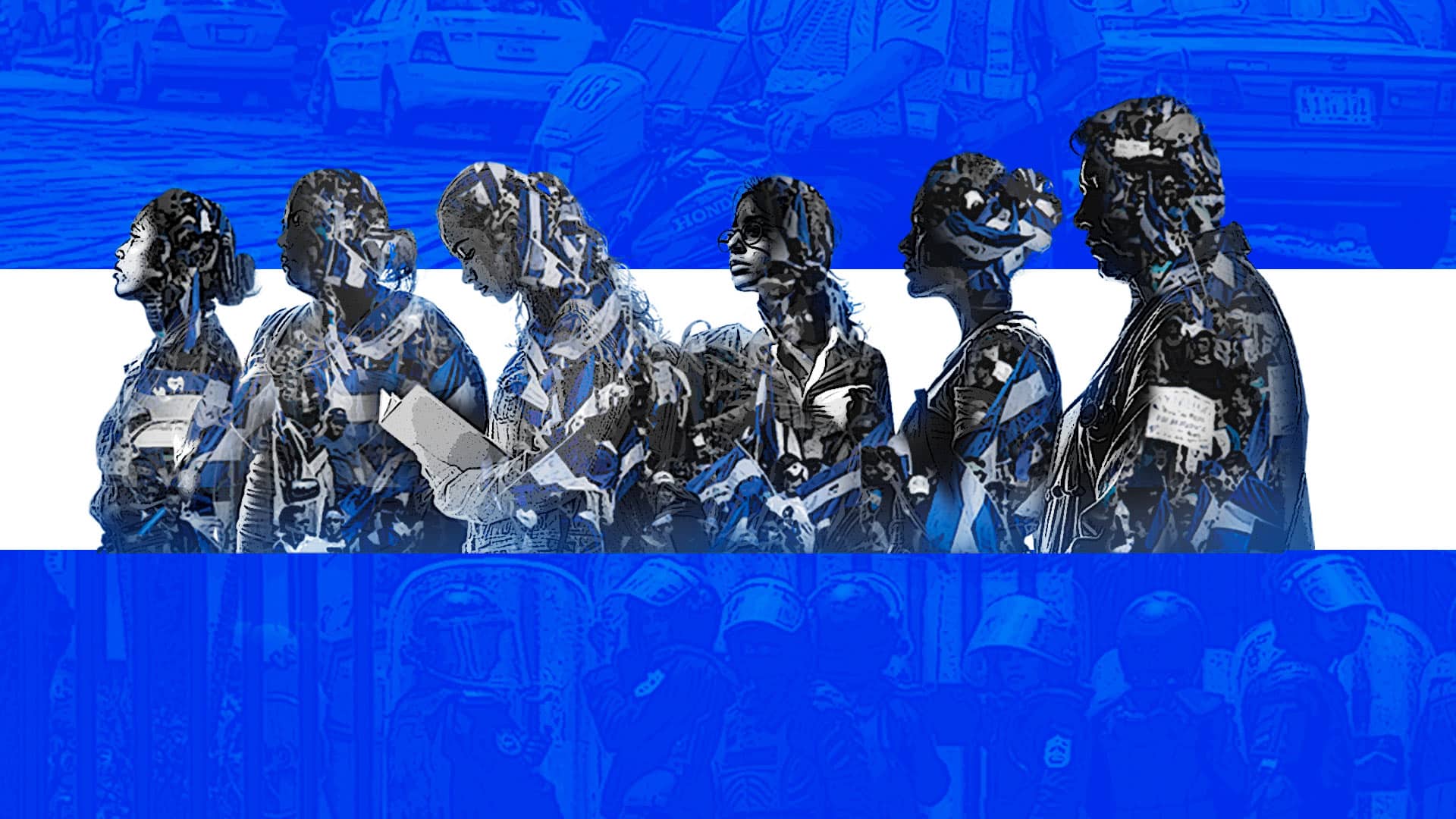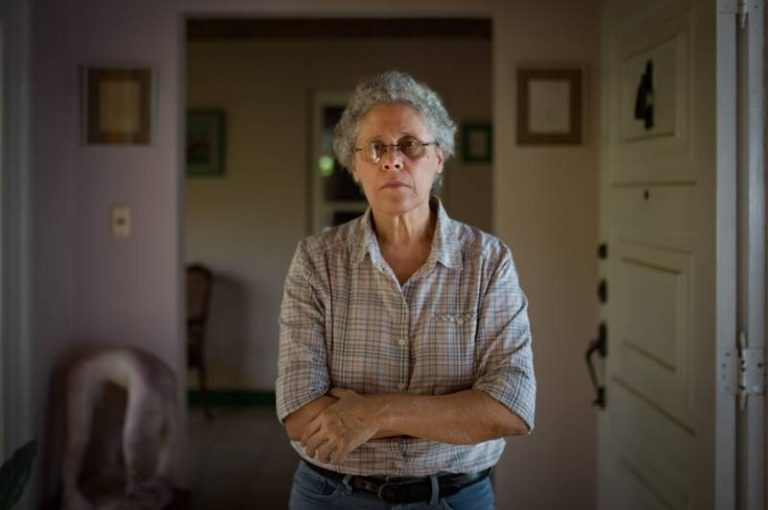14 de junio 2022

Six Years With April in Tow: Life Under Nicaragua's New 'Normal'

PUBLICIDAD 1M
PUBLICIDAD 4D
PUBLICIDAD 5D
Óscar Téllez: “She demands that the isolation cease. She has resisted, she is firm, her sense of humor is intact”

says Doara Maria Tellez
Guerilla commander Dora María Téllez, who has spent one year locked up in a total isolation cell of El Chipote, was honored by Sorbonne University, which decided to grant her an honorary doctorate, with the approval of the Ministry of Europe and Foreign Affairs of France, according to a statement that this prestigious house of studies sent to her family.
“With this title, the Sorbonne wishes to pay tribute to her exceptional political and scientific career, and to her contribution to international social commitment,” says the letter sent to the family, signed by Jamil Jean-Marc Dakhia, the institution's president.
The Parisian university hopes to “recognize her lifelong commitment to social justice and democracy, both in her country and throughout the Latin American region,” the statement said.
This prestigious university also decided to honor former German Chancellor Angela Merkel, among other personalities, with an honorary doctorate.
The award ceremony is scheduled to take place on November 28, December 9, or December 14, 2022, and although the authorities of the French university hope that Téllez will be able to receive the degree in person, her relatives do not rule out that she will designate someone else if by then she is still imprisoned by orders of Daniel Ortega and Rosario Murillo, as her brother Óscar Téllez tells in this interview in the program Esta Semana.
Óscar, as of this money, your sister Dora María Téllez, has spent one year in a punishment cell, in a solitary confinement cell in the Chipote prison. You saw her this weekend, how is she doing?
We visited her at 3:30 in the afternoon. She is a strong woman, physically and mentally. She is mentally well, she is mentally solid, and solid in her position as well. Physically she is fine. She has no chronic illnesses, so she's fine.
I found her to be a little bit better than the last visit. I think she has taken a break and has regained her usual energy levels. She is gradually recovering from the burn she got from an ointment she was prescribed for supposed vitiligo caused by lack of sun. She was seen by an internist, it seems that the doctors who diagnosed her with vitiligo are no longer treating her, and indeed, the doctor, after much insistence, saw the deputy commissioner in charge there, and she was prescribed antibiotics and has begun to improve.
How does she withstand the loneliness, the isolation? A whole year in a cell without talking to anyone, and in addition to a state of darkness.
She is emotionally strong. She finds intellectual alternatives to cope with that feeling of loneliness and isolation because, in that gallery, she is the only one who is isolated. I think the one they call ‘Chino Enoc’ is now isolated. I don't know what this man's name is, he is an enemy of Doña Chayo. And, let's say, in spite of being in those conditions, she is coherent, she is lucid, she remembers everything, she has her sense of humor practically intact, and she enjoys the things we tell her about her family, her friends.
During the conversation, I do not notice any cognitive deterioration. I am not a psychiatrist, nor a psychologist, but I do not notice her getting distracted or losing the thread (of the conversation), not even her memory, while we are already starting to have memory problems at this stage of our lives. So, in that sense, she resists it. Of course, the loneliness bothers her, the isolation bothers her, and the darkness bothers her. She specifically told me that she thinks she hasn’t lost her vision because of the darkness, but there’s no way that doesn’t affect them.
At the mock trial where she was sentenced to jail, Dora Maria said: “Prisoner or free, I will continue to fight”. Are they still interrogating her, are they still charging her with these alleged conspiracy crimes?
According to what she told me yesterday, the last interrogation was about three weeks ago, and she did not give me many details of the interrogation. She never likes to give me details, because she sees them as inconsequential, so she doesn't stop to give me much detail. She says that they have left her alone because it used to happen daily.
This sentence has been considered an act of political revenge against Dora María and has generated not only a national condemnation but also a worldwide condemnation in some international circles. Is she aware of that solidarity?
Yes, when we visit her, we always make a review of the solidarity, of the friends who call, of the friends who ask for her, of the people who pray, of the people who, even if they do not pray, dedicate their thoughts, their energies, their vital forces, to think about her in the mornings, in the afternoons. We always give her a recap of this, and the solidarity of the different groups that are emerging.
This week it was announced that Sorbonne University, in Paris, has awarded Dora Maria an honorary doctorate. What does the Sorbonne have to say about granting her this recognition?
They sent a note to Dora Maria last May 17, where they told her that she had been distinguished, by unanimous decision of the members of the Academy and approved by the French Ministry of Foreign Affairs, the Doctorate Honoris Causa, basically for two reasons: for her contribution as a social scientist, and for her struggle for democracy and freedom in Nicaragua and in the region. That is what it says, basically.
That is a doctorate that was awarded, in addition to her, to four other people, among them the former German Chancellor, Angela Merkel. It's a very high honor, I imagine. Well, I don't imagine, she told me. For her, and even for the whole family. I think it is also a tribute to the political prisoners of Nicaragua, to the one hundred and eighty or more political prisoners, to make them visible, so that people know more and more about the circumstances in which they find themselves.
How did Dora María receive this news, this recognition in prison?
She received it with pleasure. I mean, it is definitely a high academic honor to receive an honorary doctorate from the Sorbonne (...), which is a prestigious and ancient European university. It is definitely a great honor.
The doctorate has already been conferred, but the award ceremony has not taken place. Does this have a date? Do you expect Dora Maria to regain her freedom to receive that doctorate?
They are going to set a date for the end of this year, between the end of November and the beginning of December. It would be highly desirable that by that time she would be free and could travel to receive the degree from the corresponding authorities in France, from the university. But if this is not the case, I imagine that at some point she will have to appoint a person to receive it on her behalf. And we will see that in the next few months, because we are still in the middle of the year. There are still a few months to go and universities usually take their time. There are five people who are receiving this honor, and I imagine that they are combining agendas to set a definitive date, and that the other issues will be communicated to us later.
She is being held in a punishment cell in solitary confinement, as are Ana Margarita Vijil, Suyén Barahona, and Tamara Dávila. This has been the object of worldwide condemnation; but, on the other hand, there are institutions such as the International Red Cross, the Vatican or some other institutions of the Catholic Church in Nicaragua, which have not pronounced themselves on this. What expectations do you have?
I believe that those that have not pronounced themselves, are not going to do so. The International Red Cross is more or less their way of operating at the international level, because they do not want to be associated with any political movement. They are only, supposedly, watchdogs of the rights of political detainees, and there is a Convention that governs them.
As for the Church, well, there are shepherds and shepherds. Since the beginning of the Christian Church there are differences, there is a Paul and a Peter, with two different visions of the Church. At present we have a Monsignor Alvarez, and other gentlemen who are not pleasant to remember, who have different attitudes towards a fact that they consider that violates human rights, so I do not believe that the Vatican is going to change its position. Right now, a priest is detained because of an accusation; Monsignor Alvarez was assaulted and was besieged, and I don't think they are going to do it. The Vatican is always playing between being a State and being a religion. They are going to remain like that, silent, because they think that, in that way, relations are not alienated any more, and maybe in the future they can play some role, but I do not think that this will change substantially.
Is this punishment regime, which will be a year old tomorrow, going to be prolonged? Should it be suspended?
The relatives of all the political prisoners want them to be released, and in our case, the prisoners who are in isolation and in the harshest conditions, we want this condition to cease. She herself has asked during the interrogation that this condition cease, that she has the right to regular visits, to the rights that an ordinary prisoner has in Nicaragua. But they are not ordinary prisoners. I do not believe that this is going to change in the immediate future, unless there is a negotiation with the current government, or unless everyone recognizes and accepts the situation in which we live, which are two totally different and difficult things. This Government shows no signs of wanting to accept any negotiation; and on the other hand, everyone is demanding their freedom, their right to express their opinion, to organize themselves.
This article was originally published in Spanish in Confidencial and translated by our staff
PUBLICIDAD 3M
Periodista nicaragüense, exiliado en Costa Rica. Durante más de veinte años se ha desempeñado en CONFIDENCIAL como periodista de Economía. Antes trabajó en el semanario La Crónica, el diario La Prensa y El Nuevo Diario. Además, ha publicado en el Diario de Hoy, de El Salvador. Ha ganado en dos ocasiones el Premio a la Excelencia en Periodismo Pedro Joaquín Chamorro Cardenal, en Nicaragua.
PUBLICIDAD 3D